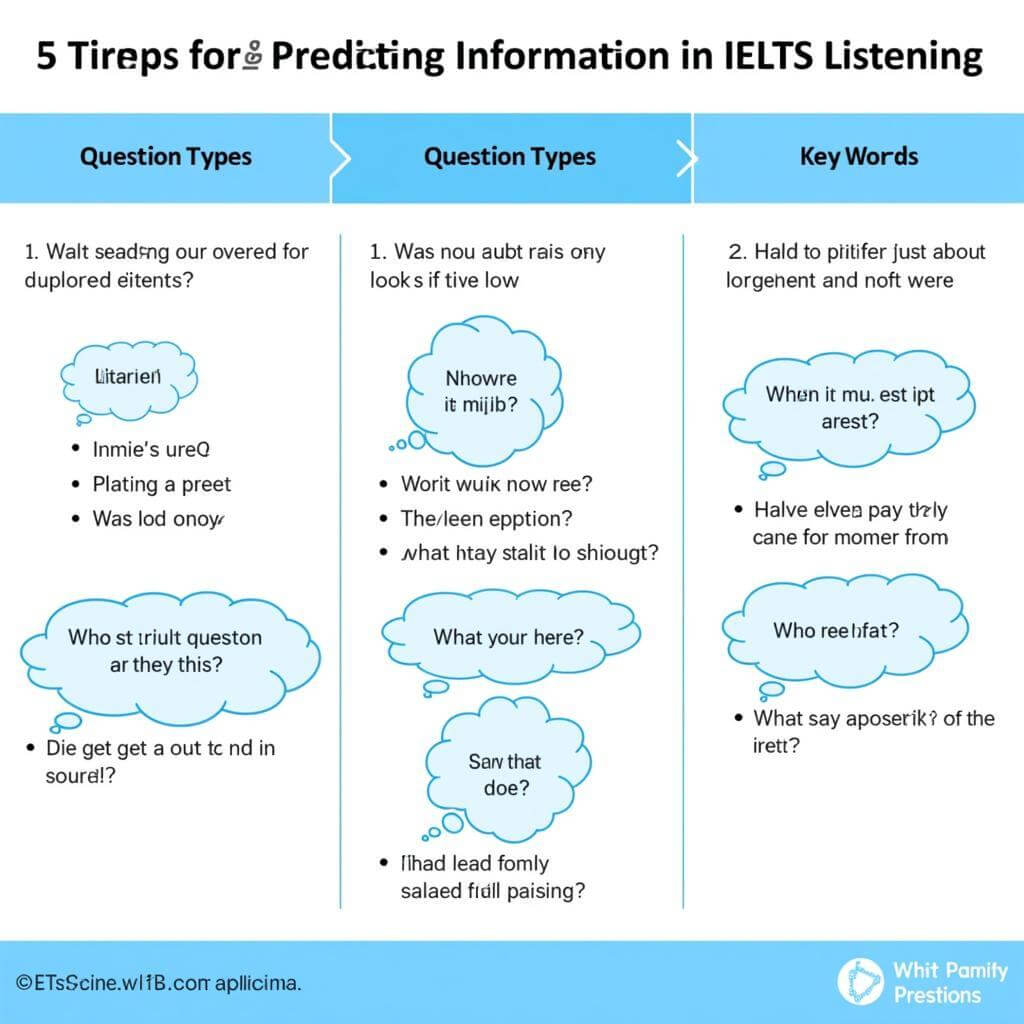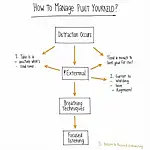The IELTS Listening test is notorious for its challenging timing, often leaving test-takers feeling rushed and overwhelmed. This comprehensive guide will explore effective strategies on how to manage tricky timing questions in IELTS listening, helping you boost your score and confidence. Whether you’re a first-time test-taker or looking to improve your performance, these expert tips will equip you with the skills to tackle even the most demanding listening tasks.
Understanding the IELTS Listening Test Structure
Before diving into specific strategies, it’s crucial to familiarize yourself with the test format:
- The test consists of four sections, each progressively more difficult
- You have 40 minutes to complete 40 questions
- You’re given an additional 10 minutes at the end to transfer your answers to the answer sheet
Understanding this structure is the first step in managing your time effectively during the test.
Common Timing Challenges in IELTS Listening
Test-takers often face several timing-related issues:
- Falling behind and missing questions
- Struggling to keep up with fast speakers
- Getting distracted by difficult questions
- Mismanaging time between sections
- Rushing through the answer transfer process
Recognizing these challenges is essential for developing targeted strategies to overcome them.
Key Strategies for Managing Tricky Timing Questions
1. Develop Effective Note-Taking Skills
One of the most crucial skills for managing timing in IELTS listening is efficient note-taking. Here’s how to improve:
- Use abbreviations and symbols
- Focus on key information (names, numbers, dates)
- Practice rapid writing techniques
“Mastering note-taking is like creating your own time-saving shorthand. It’s a game-changer for IELTS listening success,” says Dr. Emma Thompson, IELTS examiner with 15 years of experience.
2. Anticipate and Predict Information
Prediction is a powerful tool for staying ahead of the audio:
- Read questions carefully before the audio begins
- Underline key words in the questions
- Think about possible answers and related vocabulary
 IELTS listening prediction technique
IELTS listening prediction technique
3. Improve Your Concentration and Focus
Maintaining focus throughout the test is critical for managing time effectively:
- Practice mindfulness techniques
- Eliminate distractions during practice sessions
- Develop a pre-test routine to center your mind
4. Master the Art of Multitasking
IELTS listening requires you to listen, read, and write simultaneously. Here’s how to improve:
- Practice listening while reading questions
- Develop peripheral vision to scan questions quickly
- Train yourself to write without looking at your paper
5. Utilize the Pause Between Sections
The brief pauses between sections are golden opportunities:
- Quickly review your answers
- Prepare for the next section by reading ahead
- Take a deep breath to refocus
Advanced Techniques for Tricky Timing Questions
1. The “Moving On” Strategy
When faced with a difficult question:
- Give yourself a strict time limit (e.g., 5 seconds)
- If you can’t answer within that time, move on
- Return to it if time allows at the end of the section
2. The “Keywords” Approach
To quickly grasp the essence of questions:
- Identify and circle key words in each question
- Listen specifically for these words or their synonyms
- Use these as anchors to locate the correct information
3. The “Question Type” Technique
Different question types require different timing strategies:
| Question Type | Timing Strategy |
|---|---|
| Multiple Choice | Read all options quickly before the audio starts |
| Matching | Scan both lists and predict possible matches |
| Form Completion | Focus on specific information (names, numbers, dates) |
| Short Answer | Anticipate the type of answer required (noun, verb, etc.) |
4. The “Elimination” Method
For multiple-choice questions:
- Cross out obviously incorrect answers as you listen
- Narrow down your options to increase accuracy and speed
“The elimination method is like clearing a path through a dense forest. It makes finding the right answer much quicker,” notes Professor James Chen, IELTS preparation expert.
5. The “Contextual Clues” Strategy
To stay ahead of the audio:
- Listen for transitional phrases (“however”, “on the other hand”)
- Pay attention to tone of voice and emphasis
- Use context to predict upcoming information
Practice Techniques to Improve Timing Management
- Timed practice tests: Regularly take full-length practice tests under exam conditions
- Section-specific drills: Focus on individual sections to improve targeted skills
- Speed listening exercises: Practice with audio at 1.25x or 1.5x speed to enhance processing ability
- Transcription practice: Write down everything you hear to improve listening accuracy and speed
- Mock transfer sessions: Practice transferring answers quickly and accurately
Common Pitfalls to Avoid
- Don’t spend too much time on one question
- Avoid second-guessing your answers excessively
- Don’t panic if you miss a question; move on and stay focused
- Don’t neglect the importance of the 10-minute transfer time
Final Tips for Test Day Success
- Arrive early to reduce stress and settle in
- Bring a reliable watch to manage your own time
- Stay hydrated and well-rested
- Take deep breaths if you feel overwhelmed
- Trust in your preparation and stay confident
By implementing these strategies and consistently practicing, you’ll be well-equipped to handle the tricky timing questions in IELTS listening. Remember, effective time management is key to showcasing your true listening abilities and achieving your desired score.
Frequently Asked Questions
How can I improve my concentration during the IELTS listening test?
To enhance concentration, practice mindfulness techniques, eliminate distractions during practice sessions, and develop a pre-test routine to center your mind. Regular meditation and focused listening exercises can also significantly improve your ability to concentrate for extended periods.
What should I do if I miss a question during the test?
If you miss a question, don’t panic. Move on to the next question immediately to avoid falling behind. If time allows at the end of the section, you can return to the missed question. Remember, it’s better to attempt all questions than to get stuck on one and miss several others.
How important is the 10-minute answer transfer time?
The 10-minute transfer time is crucial. Use it wisely to review your answers, make any necessary corrections, and ensure all responses are clearly written on the answer sheet. Practicing quick and accurate answer transfer is an essential part of your IELTS preparation.
Can I write on the question paper during the listening test?
Yes, you can write on the question paper. In fact, it’s encouraged to make notes, underline key words, and jot down answers on the question paper before transferring them to the answer sheet. This can help you manage your time more effectively.
How can I improve my ability to understand different accents in the IELTS listening test?
To improve your understanding of different accents, expose yourself to a variety of English accents through podcasts, news broadcasts, and movies from different English-speaking countries. Practice active listening and try to identify specific pronunciation patterns in each accent.
Is it better to read ahead or focus solely on the current question?
A balanced approach is best. Quickly scan upcoming questions while listening, but maintain primary focus on the current question. This allows you to anticipate information while ensuring you don’t miss crucial details for the present question.
How can I manage my anxiety about time pressure during the test?
Managing anxiety is crucial for optimal performance. Practice deep breathing techniques, positive self-talk, and visualization exercises. Regular timed practice tests can also help you become more comfortable with the test format and timing, reducing anxiety on test day.


